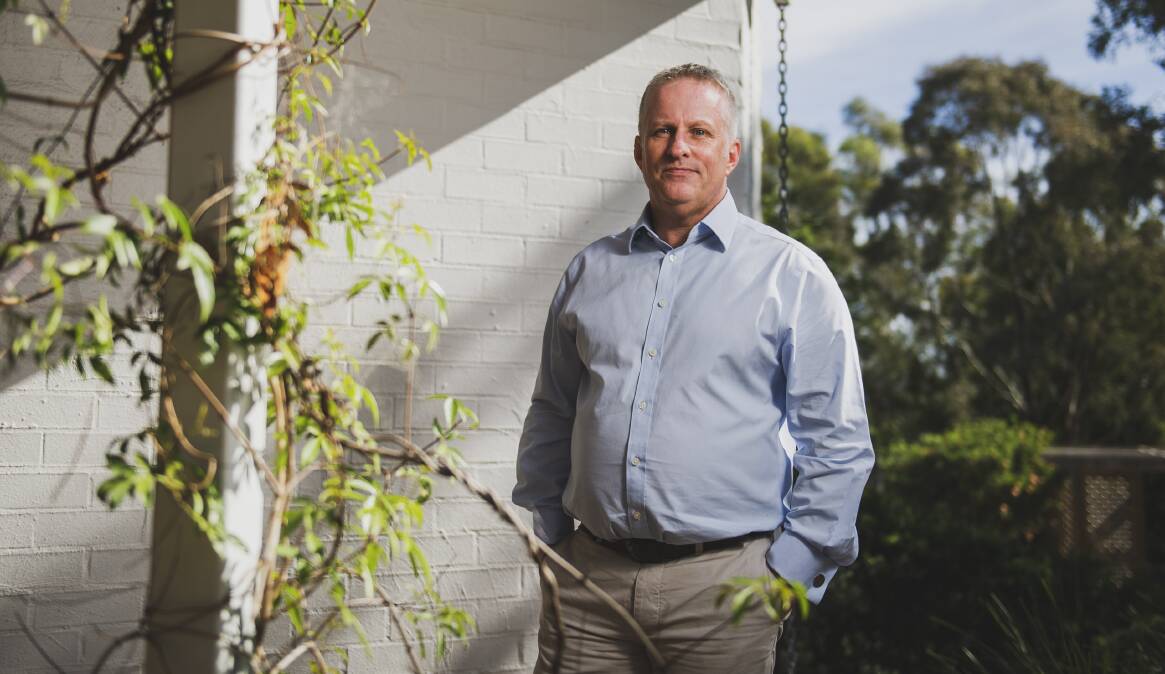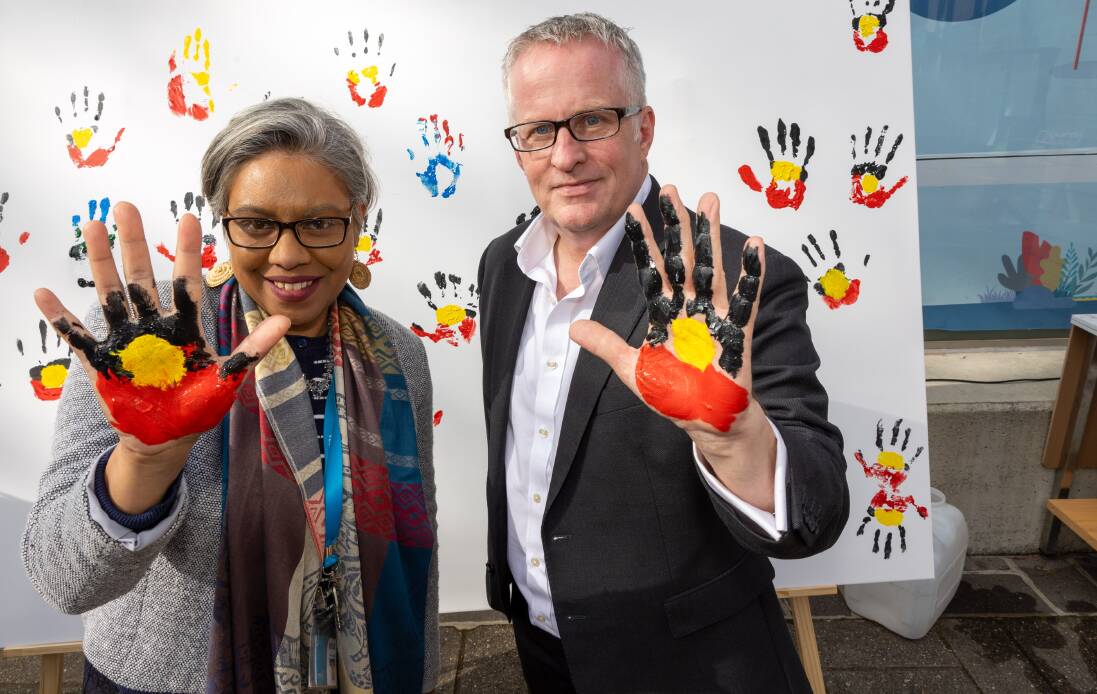Professor Paddy Nixon surprised his colleagues and the students of the University of Canberra when he stepped down from the vice-chancellor role in January, citing "personal reasons".
Professor Nixon is not yet ready to publicly delve into what those reasons were but he will be taking three months off to rest and recuperate after almost four challenging years in the leadership role.
"It was a sort of difficult process over the Christmas period. We all take that time over holidays just to reflect on things and take account of life and that was a time which I spent a bit of time with family and came to the conclusion," he said.
'Strangest of times'
The computer scientist left the vice-chancellor role Ulster University in Northern Ireland to take up the University of Canberra post at the beginning of 2020.
He arrived on the very last Qantas flight out of London on March 20 before the borders shut due to the COVID-19 pandemic.
"It was the strangest of times, that you sort of leave a place and then you can't go back there for two years," he recalled.
"And so that's one side of it - all the family and friends that you would have left. The other side of it is you arrive here and you start to run a university but you run it by Zoom."

The usual external engagements of a new vice-chancellor were put to the side as the university management focused on the pressing issues of keeping staff and students safe.
The silver lining was that Professor Nixon got a very quick and deep insight into the institution.
"I think I understood the stresses and strains, but also the passion and commitment of our staff to the students," he said.
"I still to this day am amazed at the resilience of the students during that time."
The university sector also had to contend with the former Coalition government's Job Ready Graduates scheme, which fundamentally altered how institutions were funded in a bid to funnel students into in-demand skill areas.
While other universities resorted to restructures and redundancies, the University of Canberra came through the COVID years relatively unscathed with modest surpluses.
Growing UC
Professor Nixon's tenure has also been marked by a firm vision for Canberra's only university established under ACT legislation.
He's been clear that it's a university for Canberra, by Canberra.
In March 2021, a new 20-year campus master plan was released, complete with a vision of light rail running through the campus.
Professor Nixon admits the plan has been slow off the mark.
The first real sign of progress was the sale of 15 hectares of land to Peet Limited for $66 million. The parcel of land adjacent to Aikman Drive will be developed into 1600 townhouses and apartments.
"That for me was the first signal that we were able beginning to be able to deliver on the promise of the master plan," Professor Nixon said.
Negotiations for an aged care facility are nearing a conclusion, while the feasibility study for a new basketball arena to be a home for the Canberra Capitals and community sport is also nearly complete.
Parkland, community spaces and new businesses will also bring the general public onto the campus.
"This is going to be one of the most major development and building and economic drivers for the ACT so I'm really excited about it. I think a lot will happen this year. And over the next three to five years I would see quite a transformational investment in the land here," Professor Nixon said.
The new civic partnership agreement between the university and the ACT government intends to cement the institution's role in contributing to the prosperity, health and happiness of Canberrans.
"I think those relationships have been underutilised," he said. "Maybe not at a personal level ... but we think, for no fault of anybody, we've never actually orchestrated the really amazing talents of this institution, for the betterment of Canberra and the ACT in a coherent or a managed way."
What's next?
The higher education sector is feeling further ripples of change this year.
Generative AI tools have disrupted education, sparking fears of cheating in assessments. Some of Professor Nixon's own research was in the early days of artificial intelligence. Educators will need to change their mode of delivery to deal with the disruption. For instance, students could generate a text using AI and then critique it in class.
"The generative AI is a spectacular tool to support learning. And I think universities on the whole and our university ... are just beginning to understand the power of that tool," Professor Nixon said.
The Universities Accord will be a major reset for how higher education works in Australia. Professor Nixon believes the University of Canberra and the Canberra Institute of Technology can collaborate better to help students create a package of learning with the right mix of study and on-the-job experience.
"This is a time when we should step back, think carefully about that and see how we can take a leadership role, how we can actually implement things here that are probably impossible anywhere else in the short term," he said.
In the wake of the failed Voice referendum, he also believes the university has an opportunity to work to improve the lives of Indigenous people.
"The university is positioned to do that by the legacy of [outgoing chancellor] Tom Calma, the commitment we've already made, and I think this is something that the territory as a whole and the university should take very seriously," Professor Nixon said.

On a personal note, Professor Nixon intends to stay in Canberra for the medium term.
He has five children. The eldest is studying a PhD in Cambridge, the second eldest is finishing a masters at the University of St Andrews and the third-born is taking a gap year before going to Dublin's Trinity College.
His fourth child is starting at the Australian National University in February while the youngest is going into year 10.
"I really love Canberra. It's a place that has got under my skin. So my intention is to stay here," he said.
"Obviously, after taking a bit of time I'll be looking to see what's next, but ... I'm committed to Canberra and I look forward to staying for a while."







